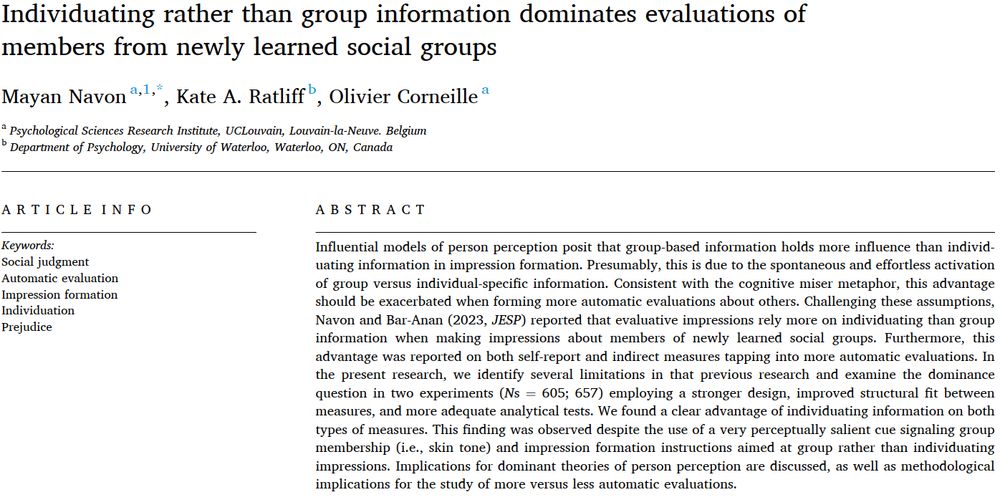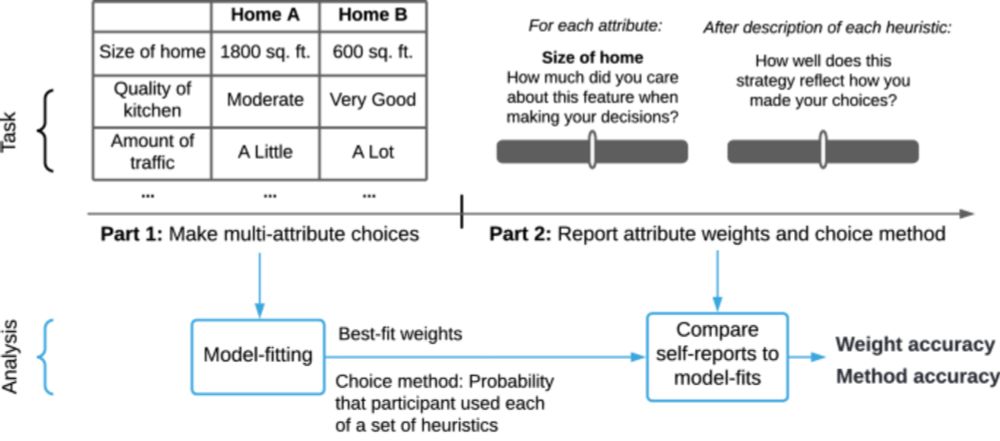Evaluative learning | Demand artifacts | Methods

www.psypost.org/self-report-...
www.researchgate.net/publication/...

www.researchgate.net/publication/...


OA here: onlinelibrary.wiley.com/doi/10.1002/...

Statements - true and false - are rated as more true after their pairing with positive than negative pictures.
This effect bridges research on evaluative conditioning and misinformation.
osf.io/preprints/ps...


Statements - true and false - are rated as more true after their pairing with positive than negative pictures.
This effect bridges research on evaluative conditioning and misinformation.
osf.io/preprints/ps...
Classic person perception models argue that group information (e.g., group valence) dominates impression formation, especially in less-than-optimal conditions. But is this really the case?
👉 Read the full paper
authors.elsevier.com/a/1m66p51f8w...

V-Dem data

V-Dem data



Demand characteristics are a fundamental methodological concern in research with humans
Yet little is known about the magnitude and consistency of these effects
In a new paper, I, M. Wyatt, and @mcxfrank.bsky.social take stock of what we’ve learned via meta-analysis
doi.org/10.1525/coll...
Demand characteristics are a fundamental methodological concern in research with humans
Yet little is known about the magnitude and consistency of these effects
In a new paper, I, M. Wyatt, and @mcxfrank.bsky.social take stock of what we’ve learned via meta-analysis
doi.org/10.1525/coll...

The paper is the result of a collaborative effort of 32 leading researchers in the field, from 10 different countries🌏
Check out the full ms👇
www.cambridge.org/core/journal...
The paper is the result of a collaborative effort of 32 leading researchers in the field, from 10 different countries🌏
Check out the full ms👇
www.cambridge.org/core/journal...

https://go.nature.com/4kIRR01

https://go.nature.com/4kIRR01
A good time to check out @timharford’s Seven truths about trade—still true, even under 50% tariffs for the EU:
buff.ly/6IBO0fH

A good time to check out @timharford’s Seven truths about trade—still true, even under 50% tariffs for the EU:
buff.ly/6IBO0fH
@rsf.org is clear: "The economic indicator on the RSF World Press Freedom Index now stands at an unprecedented, critical low"
The global state of #pressfreedom is classified as a 'difficult'. For the first time #WPFD2025
rsf.org/en/rsf-world...
@rsf.org is clear: "The economic indicator on the RSF World Press Freedom Index now stands at an unprecedented, critical low"
The global state of #pressfreedom is classified as a 'difficult'. For the first time #WPFD2025
rsf.org/en/rsf-world...
www.nature.com/articles/s41...
🧵

www.nature.com/articles/s41...
🧵
One puzzling conundrum in contemporary politics is that politicians who seem to be estranged from facts and evidence are nonetheless considered honest by their followers.
1/n
One puzzling conundrum in contemporary politics is that politicians who seem to be estranged from facts and evidence are nonetheless considered honest by their followers.
1/n

